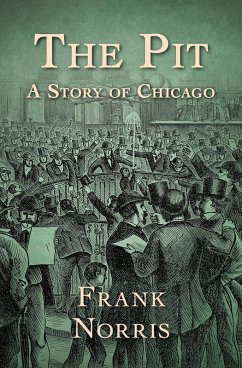
Clover and Blue Grass (eBook, ePUB)
Versandkostenfrei!
Sofort per Download lieferbar
0,49 €
inkl. MwSt.
Weitere Ausgaben:

PAYBACK Punkte
0 °P sammeln!
In "Clover and Blue Grass," Eliza Calvert Hall weaves a rich tapestry of rural life in early 20th-century America, exploring themes of nature, community, and the intimate bonds of family. Set against the backdrop of the Kentucky countryside, Hall employs a lyrical prose style that intricately captures the beauty of the landscape through vivid descriptions and heartfelt symbolism. The book is a poignant reflection of the agrarian lifestyle, filled with nostalgic reminiscence and infused with the cultural nuances of southern life, which illuminates the social fabric of the time. Eliza Calvert Ha...
In "Clover and Blue Grass," Eliza Calvert Hall weaves a rich tapestry of rural life in early 20th-century America, exploring themes of nature, community, and the intimate bonds of family. Set against the backdrop of the Kentucky countryside, Hall employs a lyrical prose style that intricately captures the beauty of the landscape through vivid descriptions and heartfelt symbolism. The book is a poignant reflection of the agrarian lifestyle, filled with nostalgic reminiscence and infused with the cultural nuances of southern life, which illuminates the social fabric of the time. Eliza Calvert Hall, an influential Kentucky author, drew inspiration from her own experiences in a rural setting to craft this work. Born into a family of educators and storytellers, Hall's deep appreciation for nature and her skillful storytelling are evident throughout the text. Her background not only informed her understanding of agricultural practices but also her ability to depict the lives of women in this context, illustrating their resilience and strength. "Clover and Blue Grass" is highly recommended for readers seeking an authentic portrayal of rural Americana and the lives of its inhabitants. This book offers both an enchanting narrative and a valuable historical perspective, making it a significant contribution to the canon of early 20th-century literature. Hall's work will resonate with anyone who cherishes profound connections with nature and community.
Dieser Download kann aus rechtlichen Gründen nur mit Rechnungsadresse in A, B, BG, CY, CZ, D, DK, EW, E, FIN, F, GR, H, IRL, I, LT, L, LR, M, NL, PL, P, R, S, SLO, SK ausgeliefert werden.













